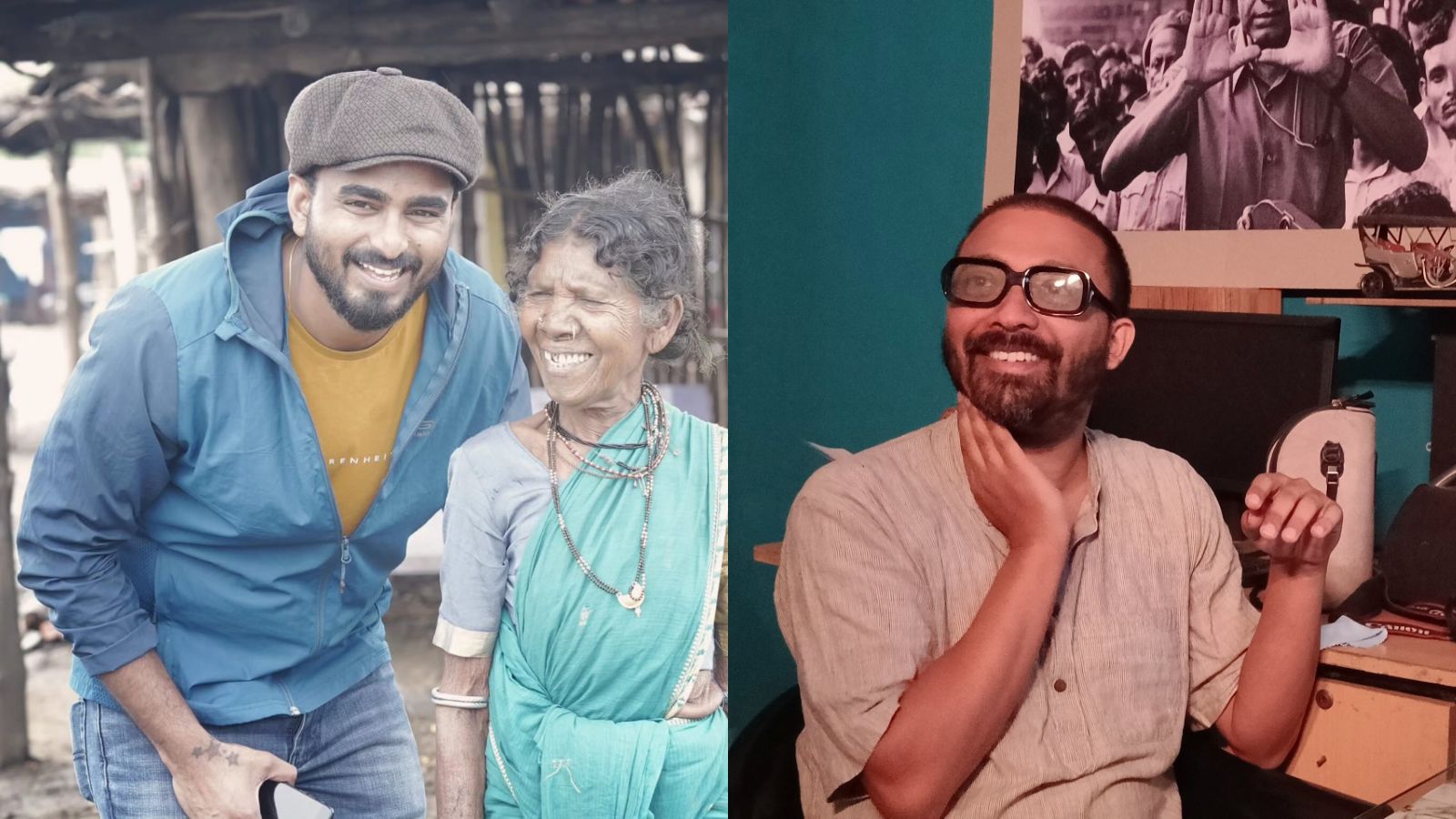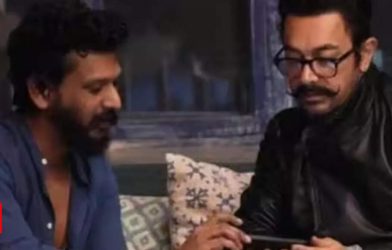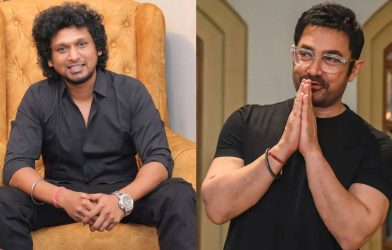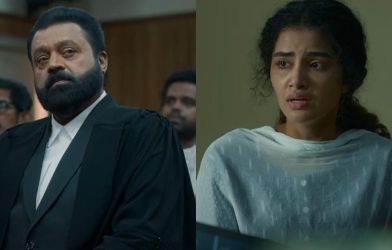Summers in the hamlet of Kharatwadi came with an annual fair. This was in the late 1990s when TV was still a luxury in this small village in Maharashtra’s Nanded. Avinash Shembatwad eagerly waited for the fair, his one chance to watch ‘masala Bollywood’ movies. With video cassettes, a VCR player and a TV, it was a community affair. Around 50 to 100 people would gather to experience cinema on a small screen.
After Class 4, Shembatwad secured admission at a school in the nearby taluka of Selu in Parbhani. The taluka had its own movie theatre and in Class 5, Shembatwad’s school took the students for a screening of The Legend of Bhagat Singh. It was his first experience of watching a movie on the big screen – and the beginning of a dream.
“I started going to the theatre regularly. There wasn’t a single Friday release that I missed. I decided what I wanted to do in this life and someone told me I should go to Mumbai, where all the films are made,” said Shembatwad.
After securing admission to an engineering college, he came to Mumbai in 2010. Two years into the course, he dropped out wanting to purely focus on performing arts. He started dabbling in magic with a small circle of young magicians and also began writing and directing plays for different college events.
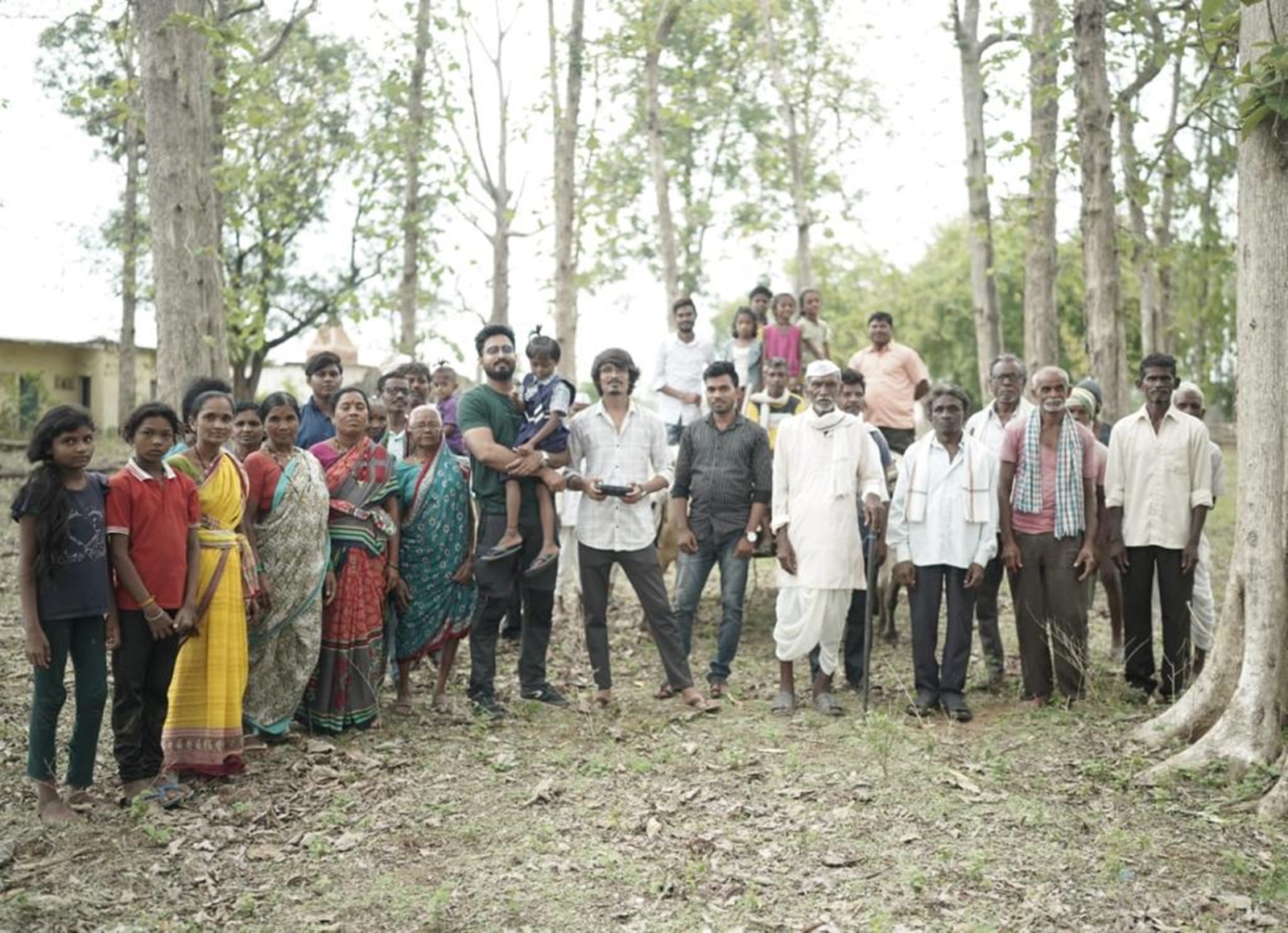
Shembatwad’s life took a turn when he moved to Pune eyeing an admission at the Film and Television Institute of India (FTII). In the company of friends who were all Maharashtra Public Service Commission (MPSC) aspirants, he too started preparing for the civil services. “My friends suggested that since I was in Pune, I could prepare for MPSC with them. I studied for two or three years and got caught in the cycle. I cleared the exam in 2019 but there was a sense of loss about the dream of filmmaking, so I felt like I should keep it alive in some way,” he said.
During the pandemic, when the MPSC exam got postponed, Shembatwad lost some of his friends to suicide. That was the trigger. He started writing a script in 2021. “It was time to listen to the pain of all those preparing for MPSC and it was only fitting they tell this story themselves,” said Shembatwad.
With a cast and crew made up of 90 per cent civil service aspirants, Shembatwad took on his first filmmaking project. Everyone in the cast was a first-time actor, a student living in Sadashiv Peth, preparing for the MPSC.

“The pre-production took six to eight months. I had to teach the basics of filmmaking to the entire team from scratch. Plus, they were all studying throughout the day in the library. At night, they gave time for the film,” he said.
That is how in eight months of preparations and only six days of shoot, first-time producers and first-time actors and technicians made the first Marathi film commenting on the sufferings, struggles, successes and failures of students trying to crack Marathi competitive examinations.
Shembatwad released Yathavkash on YouTube in January 2023 and on May 17, 2024, it found a place on a free-for-all OTT platform.
Chunaav, a film on the will to vote
“I have a passion for film, the routine job goes on, so I bank on my weekly and festive offs to search for stories at the local level and I avoid getting a large production team on board to avoid a longer duration for the project to complete,” said Shembatwad.
It helps that he got posted in a place whose stories have rarely been told. Shembatwad is currently posted in Jiwati in Chandrapur, on the Telangana border. “There is no network anywhere except for the headquarters. When I get bored, I go to the village and spend time with people, a habit I am fond of. It is through conversations with locals that I got an idea to write my short film Chunaav,” he said.
It was a film Shembatwad made for the Election Commission of India (ECI) to increase voting percentage in remote parts of Maharashtra. Set during the 10th Lok Sabha elections in a Naxalite area, its theme is the will of a common man to keep the democratic process alive amidst the threat of boycotting elections.
The short film gives a nod to the “people of Chandrapur” and gives special thanks to the people of Kanhalgaon and Kolamguda. Even the tribal folk songs and musical instruments are contributions of the locals.
In the film, an ailing old man, with no hope for recovery, wakes up at the sound of the radio announcing polling day. As he gets dressed to step out for voting and wears his white topi while looking in the mirror, a reflection of Dr Babasaheb Ambedkar can be seen in the mirror. He also cleans a dusty picture of freedom fighters placed on the wall.
Through symbolic scenes like these and a symbolic ending, Chunaav is a call for voter participation. The old man walks through a long forest stretch braving the sounds of wild animals, removes a boycott election poster from the tree and casts his vote, following which the entire village shows up to vote.
During the current Lok Sabha elections in Maharashtra, Chunaav was screened in all the tribal villages with a voter turnout of less than 60 per cent historically. Shembatwad was the assistant electoral registration officer for Jiwati Taluka. He said in some polling booths the percentage reached 80 per cent. While at the Yermi Yesapur polling booth, the voting percentage was 80.70 per cent, in Maharajguda, the voting percentage increased from 50.14 to 73.09 per cent.
The film has been screened at numerous film festivals and bagged the Best Social Film award at the Mumbai International Film Festival and Filmfare International Film Festival. It has also officially been selected for the Dadasaheb Phalke International Film Festival. On June 1, it is set to be screened at the New York Indian Film Festival.
Shembatwad, who strongly believes that cinema is a medium of change, is now in the process of releasing his third film The Lost Paradise, shedding light on tribal history, culture and the problems faced by the Adivasis in Jiwati.
Another civil servant walks the same path
Like Shembatwad, another civil servant, Indian Revenue Service (IRS) official Anwesh too holds a passion for performing arts and filmmaking. “I cleared UPSC in 2013 and got selected for IPS. But I wanted to be in a position where I could perform my duties as a civil servant and also have time to make films,” he said.
A trained vocalist with a degree in music, Anwesh has stayed true to his dream. In the middle of tax theft prevention, anti-narcotics and anti-smuggling raids, he has found time to produce a two-hour feature film. The film, as Anwesh describes it, is, “of the people, by the people, for the people”. Extensively shot in Pune and Mumbai with the help of locals, Anwesh aims to empower the common man.
The film revolves around five characters. The narrator, a cancer patient, aspires to be a filmmaker. Then, there is a child and its relationship with a working mother, a transwoman from Pune, a character from the North East who teaches sports to Adivasi kids in Odisha, and a musician stuck in an artistic block.
Shot on a shoestring budget with technicians from FTII, the film features colonies and locals from Pimpri. “Everyone has something of their own going on. Through this movie I wanted to highlight the factor of perseverance that is inherent in people,” said Anwesh.

